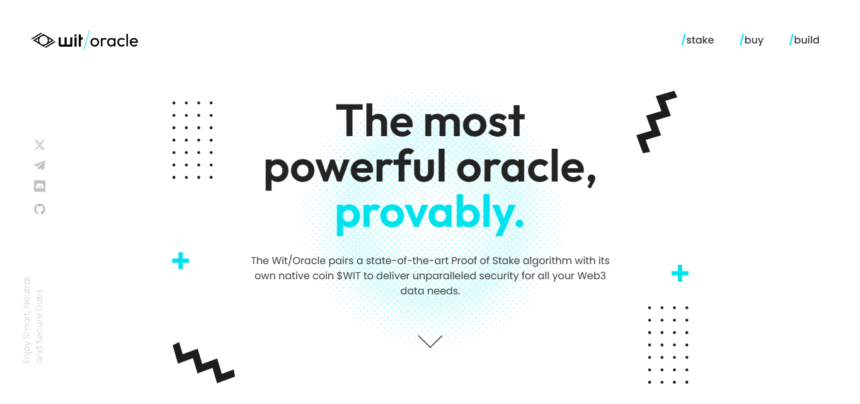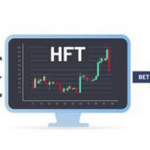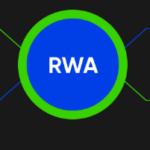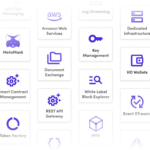In this article, I will explore the use of bridging oracles for price feeds in decentralized applications (dApps).
Bridging oracles facilitate data communication between different blockchains and provide real time accurate pricing crucial for defi platforms.
I will analyze their contribution, advantages and the efforts required to improve cross-chain interoperability and reliability of information through data oracles.
What are Oracles?
An oracle provides off-chain information to smart blockchain contracts. Information such as price data, weather updates, or sports statistics are monitored and verified by oracles and are then provided to dApps.
This real-time information helps smart contracts to operate based upon certain real-world occurrences, which then leads to transferring assets or executing trades.
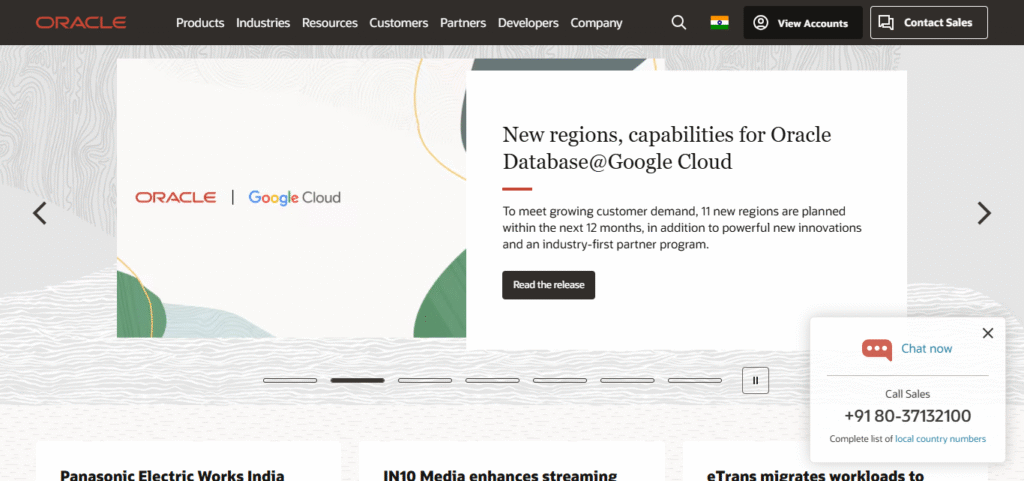
An oracle can be centralised or decentralised; however, a decentralised oracle provides more security since it has fewer points of failure. They are vital for many blockchain applications, especially in DeFi, where precise and immediate data is critical for safe and dependable operations.
How To Use Bridging Oracles For Price Feeds
Let us use Chainlink to illustrate the process of utilizing bridging oracles for simplictic price feeds in just a few steps.
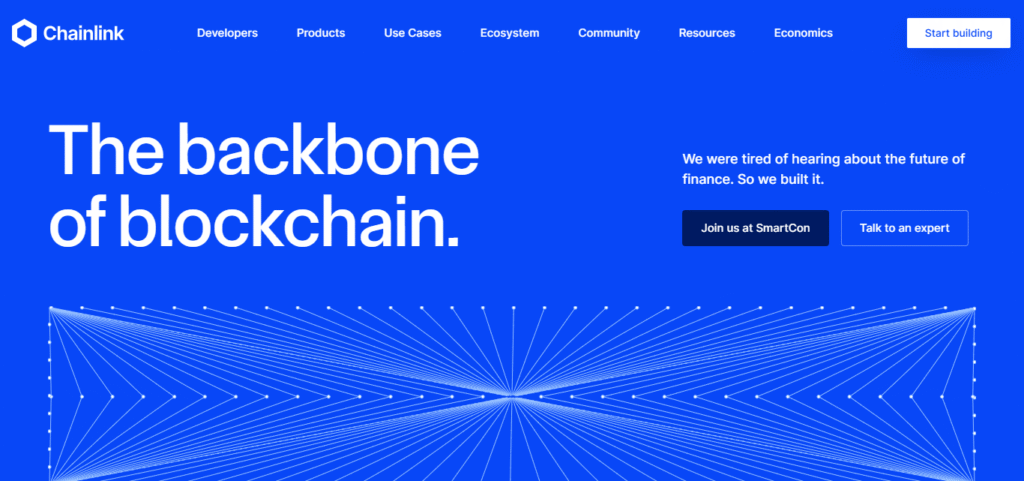
Connect to the Blockchain: Installation of Chainlink at your desired blockchain network as a price feed will have to done step first.
Smart Contract Integration: You may need to create or upload a smart contract that seeks price information. Through Chainlink’s Price Feed Aggregator, you could access on the shelf contracts through custom integration.
Select the Data Source: Select the accurate data provider or financial market from which Chainlink draws data (precisely stock prices and values of cryptocurrencies).
Request the Price Feed: The smart contract connects with the Chain link oracles to get the last available pricing information from the other sources.
Bridge External Data: Off-chain data (the actual prices) is incorporated to the blockchain by Chainlink in a way that the data cannot be altered and is decentralized.
Validate Data Accuracy: With the use of multiple oracles, Chainlink mitigates the threat of inaccuracy or manipulation through data aggregation.
Use the Data: Your DeFi platform can integrate price feeds to capture trading, collateral price estimation, liquidity pool changes and so many other operations.
Popular Bridging Oracles for Price Feeds
Band Protocol
Band Protocol is a decentralized oracle platform built for scalability and speed, with cross-chain capabilities. It runs on its own blockchain BandChain, which allows for high request data throughput and low latency retorts.
Through numerous vetted sources, Band Protocol fetchs price information and provides precise price data to numerous smart contracts hosted on different blockchains.
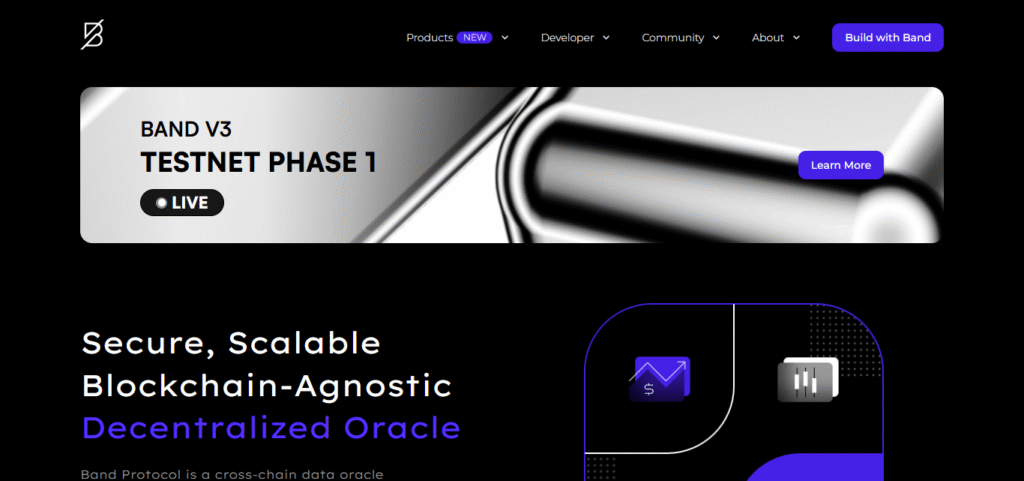
Band Protocol’s ability to integrate several blockchains through interoperability bridges makes it trustworthy for application developers who build multi-chain dApps needing fast reception and secure access to real-world information.
Pyth Network
The Pyth Network is an oracle network with high frequency that specializes on giving low latency, real-time data suitable for DeFi and trading applications.
It fetches data straight from institutional data sources such as exchanges and market makers, guaranteeing its precision and speed.
Pyth uses cross-chain bridges such as Wormhole to ensure constant price feeds throughout ecosystems aiding smart contracts respond promptly to market fluctuations, while also supporting multiple blockchains like Solana, Ethereum, and Aptos.
Witnet
Witnet is a decentralized oracle network that provides verifiable randomness and tamper-proof price feeds. It utilizes its own blockchain for data request processing and validation to guarantee trust and transparency.
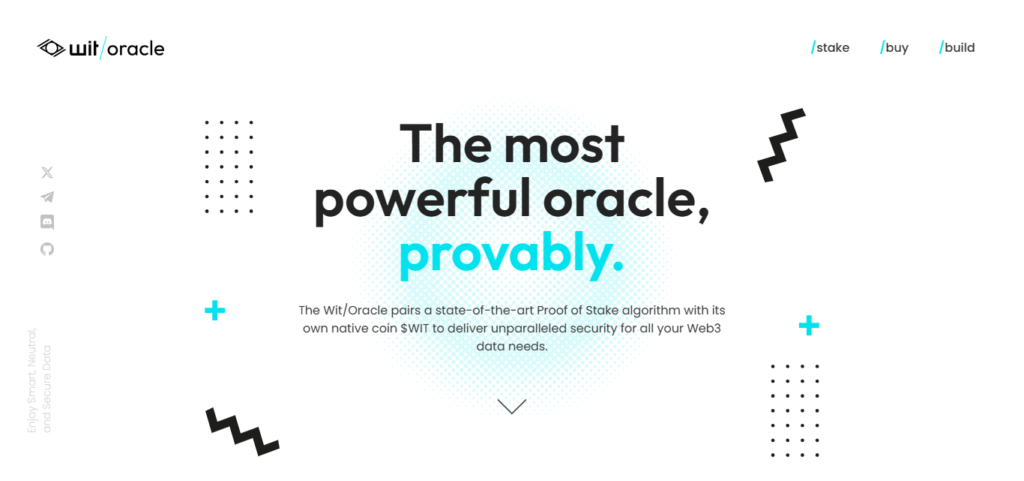
Witnet and other networks are bridgeable for safely delivered data to smart contracts on multiple blockchains, making it suitable for highly integrous applications requiring auditability.
Challenges and Considerations
Latency and Speed
Communication between chains can be prone to lag. Bridging oracles are slower in fetching and delivering data relative to on-chain oracles which can hinder real-time trading or rapid-executing DeFi protocols.
Security Risks
Bridging oracles can fall victim to data spoofing, bridge exploits and oracle frontrunning attacks. An oracle or bridge that has been compromised can provide erroneous price data resulting in contraction of funds due to severed resources or contract failures.
Decentralization Trade-offs
Single points of failure can arise from reliance on centralized bridges or data providers. It is important to ensure that there is a level of trustless decentralization across both the oracle network and bridging infrastructure.
Cost and Resource Usage
Collecting data from different chains entails high gas fees and computations. Developers integrating bridging oracles to their systems will have to reconsider the economic trade-offs that will come with it.
Data Consistency Across Chains
Coordination of active price feeds between multiple chains tends to be a technical issue. Timing discrepancies, even the slightest, pose a risk towards the accurate execution of contracts.
Integration Complexity
The configuration of bridging oracles requires a proficient understanding of various blockchain ecosystems, mergers, and oracle setups, leading to increased development difficulty, which increases chances of error.
Governance and Upgrades
An example of an oracle network straddling on a governance system to control data inputs or manage protocol upgrades is also verifiable. An update in governance or an unforeseen protocol update tends to likely disrupt theorem consistency.
Future of Bridging Oracles and Price Feeds
Cross-Chain Development: Heightened use for effortless interactions between several blockchains.
Better Speed & Relaying Of Information Thetertment: Bridging will experience increased speed and improved integrity of information.
Adoption Of Circumventing Interfaces And Other Connected Etiquette: CCIP and eqivalent protocols will gain acceptance for transferring information across different chains.
The Coming Of First Hand Town Criers: Oracles suplying data directly creates a high level of assurance and accessibility of the information.
AI with ZK Tech: Use of AI for validation coupled with zero-knowledge proof increases the efficiency of providing information without compromising on reliability.
Wider Scope: Oracles will provide services in areas such as climate data, identity verification, and even credit verification besides their conventional price feeds.
Governance Without A Centralized Power: Autonomous oracle network operated by the community will improve overall robustness while also minimizing centralization risks.
Conclusion
In closing, it can be emphasized that Bridging Oracles play a crucial role in providing precise and accurate price data across blockchains which in turn enables the functionality of secure and decentralized applications.
Developers can improve the accuracy of information, lower risks, and promote cross-chain capabilities by integrating trusted Chainlink or Band Protocols. As the blockchain ecosystem develops, bridging oracles will remain crucial to the evolution of DeFi and Web3 technology.


